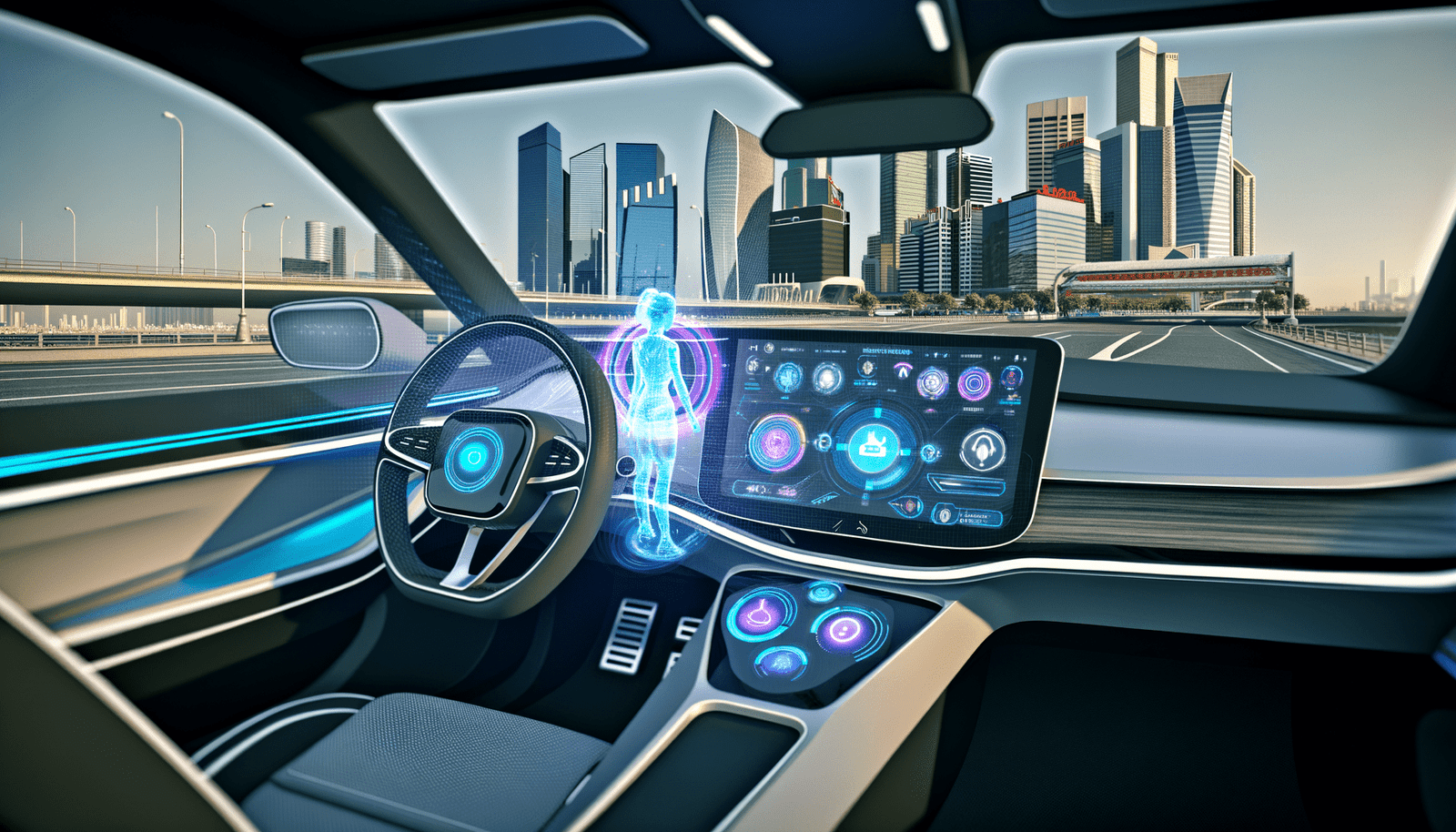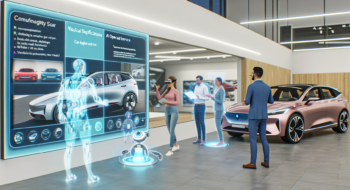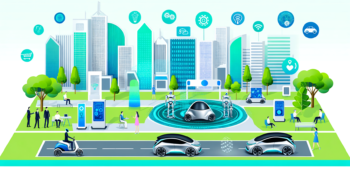Artificial Intelligence (AI) is revolutionizing the automotive industry, transforming how we drive, navigate, and interact with our vehicles. From enhancing safety features to enabling autonomous driving, AI is at the forefront of creating smarter, more efficient cars. However, this technological shift brings both exciting possibilities and significant challenges. As we explore the current advancements, potential future innovations, and the ethical dilemmas that may arise, it’s essential to consider not only what AI can achieve but also the pitfalls that could emerge as we integrate these systems into our daily lives.
AI Driving the Future of Automotive Innovation
In a world increasingly defined by technology, the automotive industry stands out as a prime example of transformation. AI is not just an add-on; it’s becoming the backbone of modern vehicles. With the integration of machine learning, natural language processing, and computer vision, cars are evolving to meet the needs of today’s drivers and passengers.
Enhancing Safety Features
One of the most compelling applications of AI in cars is its role in enhancing safety. According to the National Highway Traffic Safety Administration, over 90% of crashes are caused by human error. Enter AI, which aims to mitigate this factor significantly. Advanced Driver Assistance Systems (ADAS) harness AI technologies to assist drivers in various ways:
- Automatic Emergency Braking: This feature uses sensors to detect imminent collisions and automatically applies the brakes to prevent accidents.
- Adaptive Cruise Control: AI monitors the distance between vehicles and adjusts speed accordingly, providing a seamless driving experience while ensuring safety.
- Lane Keeping Assistance: By analyzing road markings, this technology helps drivers stay within their lanes, further reducing the risk of accidents.
These features don’t just offer convenience; they have been statistically proven to save lives. As automotive manufacturers prioritize safety, the incorporation of sophisticated AI systems is set to become the standard.
Autonomous Driving on the Horizon
Imagine hopping into your car, telling it your destination, and then sitting back while it drives you there. This reality, once confined to science fiction, is now being developed by companies like Tesla, Waymo, and Uber. Autonomous driving relies heavily on AI algorithms that process vast amounts of data to make real-time decisions.
At its core, autonomous driving benefits from:
- Data Analysis: AI collects and analyzes data from various sensors, cameras, and GPS systems, enhancing the vehicle’s understanding of its environment.
- Machine Learning: As drivers use their cars, AI continually learns from those experiences, improving its ability to navigate complex scenarios.
- Simulation Training: Many automakers utilize AI in simulated environments to test and refine autonomous systems before they hit the road.
While full autonomy is still in the testing phase, partial automation is already making waves in the market. Major players are racing to perfect this technology, knowing that the first to master safe and efficient autonomous driving will capture significant market share.
AI and In-Car Experience
Beyond safety and autonomy, AI is making a splash in enhancing the in-car experience. Passengers today expect more than just transportation; they desire entertainment, connectivity, and personalization. AI-driven infotainment systems are meeting these expectations and redefining the experience of car ownership.
- Voice Assistants: Virtual assistants such as Amazon’s Alexa or Google Assistant enable drivers to control music, navigation, and other vehicle functions hands-free, making for a safer and more enjoyable ride.
- Personalization: AI analyzes driver preferences—like seat position, preferred temperature, and radio stations—to create a customized driving experience every time the car is used.
- Real-Time Updates: Navigation systems equipped with AI can provide real-time traffic updates, suggest alternate routes, and even find points of interest along the way.
These enhancements not only cater to passenger comfort but also underscore the shift from traditional automotive features to integrated technology ecosystems. The result? An environment that feels intuitive and modern.
The Future: What Could Be
So what does the future hold for AI in cars? The possibilities are exhilarating. Imagine cars equipped with advanced AI able to predict maintenance needs before they become serious problems. Picture a world where vehicles communicate with each other and traffic systems, creating a synchronized flow and drastically reducing congestion.
Smart Cities and Connected Vehicles
The concept of smart cities—a coordinated network of interconnected vehicles, infrastructure, and urban services—is gaining traction. With AI driving innovation, we’ll see:
- Vehicle-to-Everything (V2X): Cars could communicate with traffic lights, road signs, and other vehicles to optimize traffic flow and enhance safety.
- Park Assist Systems: Finding parking spaces could be a thing of the past as cars autonomously search and park in available spots.
- Eco-Friendly Technologies: AI can optimize driving patterns to reduce emissions, promoting sustainability within urban environments.
These innovations promise to not just change how we travel but to reshape entire cities into smarter, more efficient ecosystems. But with this promising future comes the need for mindful governance and ethical considerations.
The Risks: What Might Go Wrong
While the benefits of AI in cars are undeniable, it is essential to be vigilant about potential risks. With any disruptive technology, unforeseen consequences can occur. Consider the following:
Ethical Considerations
The ethical dilemmas surrounding AI in automotive technology are multifaceted:
- Decision-Making in Crises: In an accident scenario, how should a self-driving car prioritize the safety of its passengers versus pedestrians? These moral quandaries can lead to contentious debates.
- Liability Issues: If an autonomous vehicle causes an accident, who is responsible? Navigating this legal maze will require new frameworks as technology evolves.
- Privacy Concerns: The vast amounts of data collected by AI systems raise questions about personal privacy and how this information is used and protected.
Reliability and Cybersecurity
As vehicles become more connected, they also become more vulnerable to cyber threats. A breach could compromise not only individual vehicles but potentially entire fleets. Ensuring the cybersecurity of these systems is paramount for consumer safety and trust. Furthermore, the reliability of AI systems is crucial:
- Over-Reliance on Technology: An increasing dependency on AI could dull human response times and essential driving skills.
- Technical Malfunctions: Glitches or errors in AI systems can lead to disastrous consequences if not addressed promptly.
Job Displacement
The rise of autonomous vehicles could lead to significant job losses in various sectors, including trucking and taxi services. Addressing this transition, and finding new opportunities for displaced workers, is crucial as we move forward. These societal shifts will require proactive policies to ensure a balance between innovation and human impact.
In conclusion, AI in cars represents a frontier of innovation filled with promise and potential pitfalls. The successes we are witnessing today—enhanced safety, autonomous driving, and improved in-car experiences—are just the beginning. As we navigate this uncharted territory, it’s crucial to foster responsible growth, addressing the ethical and technical challenges that may arise. The future is bright, but it calls for a balanced approach that assures safety, privacy, and sustainability.
As we accelerate into this exciting era of automotive AI, let’s buckle up and embrace both the journey and its complexities. With thoughtful consideration and ethical frameworks, we can steer this technology toward a future that truly benefits all.
For more about technology and its integration with our daily lives, check out Neyrotex.com.







